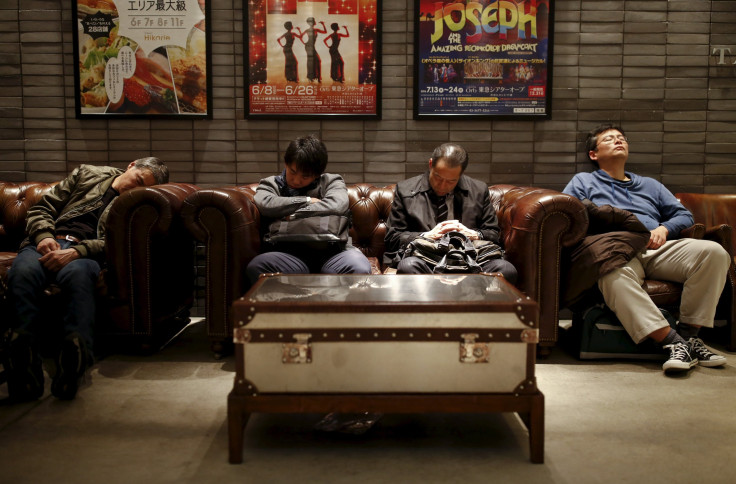How Much Sleep Do You Need? Nearly 40% Of Japanese Sleep Less Than 6 Hours A Day

Nearly 40 percent of Japanese sleep for less than six hours a day, an annual survey conducted by the national health ministry found. The findings of the 2015 National Health and Nutrition Survey, which was conducted last November, was published Monday.
Researchers received valid answers from 3,507 of the 5,327 households surveyed, Japan Times reported. A majority of respondents said, on an average, they slept between six and seven hours a day. Male respondents attributed their short slumber to work and health issues while female respondents said they slept less because of work and housework.
The report found 39.5 percent of respondents slept less than six hours a day. The share of people sleeping for less than six hours a day on average has increased from 2007 when the figure was at 28.4 percent.
When men in their 20s were asked what might help them sleep more, most said reduced work hours would help. Women in their 20s largely said, “not using mobile phones, texting and playing games before going to bed.” Women in their 30s said “support for child rearing” might help them sleep more while women in their 40s cited “support for housework.”
Among people aged 60 and above, the most popular answer for how they could extend their sleep time was “improvements in the health." The ministry said the report’s findings urge the need to figure out “how to improve our work-life balance and to share household work."
The annual survey, which was launched in 2003, also found that 41.4 percent of respondents who were also nonsmokers said they had been exposed to secondhand smoke at restaurants in the last month. Researchers found that 30.9 percent had a similar experience while out on the street.
Japan, which is hosting the 2020 Olympics, is attempting to curb this exposure to secondhand smoke in time for the games. The health ministry added that it is considering imposing a complete ban on smoking near schools, hospitals and in restaurants.
The number of smokers is on a decline, however. The report found that the share of people nationwide who smoke fell from 19.6 percent in 2014 to 18.2 percent in 2015. The survey also found that 47.6 percent of men and 52.7 percent of women consume balanced meals at least twice a day on average.
However, the same could not be said for younger respondents. “Younger generations dine out often and there is a problem in terms of nutritional balance,” the ministry said.
© Copyright IBTimes 2025. All rights reserved.






















